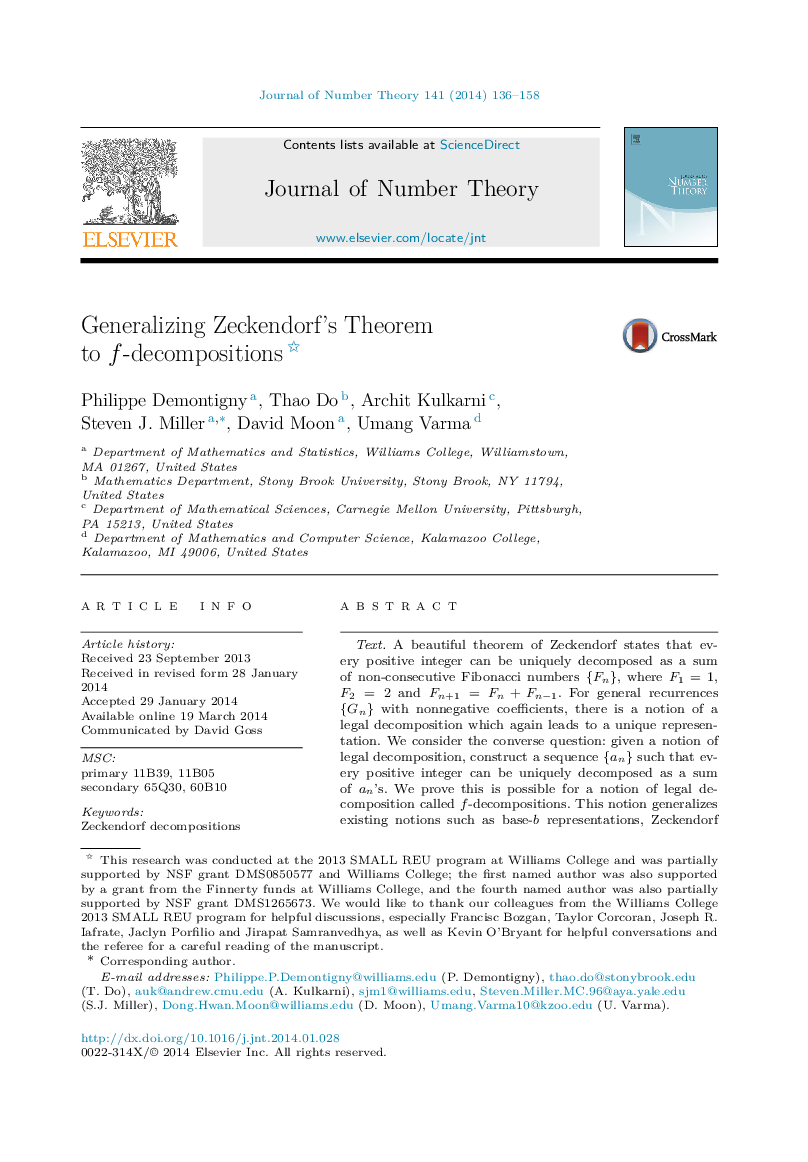| Article ID | Journal | Published Year | Pages | File Type |
|---|---|---|---|---|
| 4593949 | Journal of Number Theory | 2014 | 23 Pages |
TextA beautiful theorem of Zeckendorf states that every positive integer can be uniquely decomposed as a sum of non-consecutive Fibonacci numbers {Fn}{Fn}, where F1=1F1=1, F2=2F2=2 and Fn+1=Fn+Fn−1Fn+1=Fn+Fn−1. For general recurrences {Gn}{Gn} with nonnegative coefficients, there is a notion of a legal decomposition which again leads to a unique representation. We consider the converse question: given a notion of legal decomposition, construct a sequence {an}{an} such that every positive integer can be uniquely decomposed as a sum of anan's. We prove this is possible for a notion of legal decomposition called f-decompositions. This notion generalizes existing notions such as base-b representations, Zeckendorf decompositions, and the factorial number system. Using this new perspective, we expand the range of Zeckendorf-type results, generalizing the scope of previous research. Finally, for specific classes of notions of decomposition we prove a Gaussianity result concerning the distribution of the number of summands in the decomposition of a randomly chosen integer.VideoFor a video summary of this paper, please click here or visit http://youtu.be/hnYJwvOfzLo.
